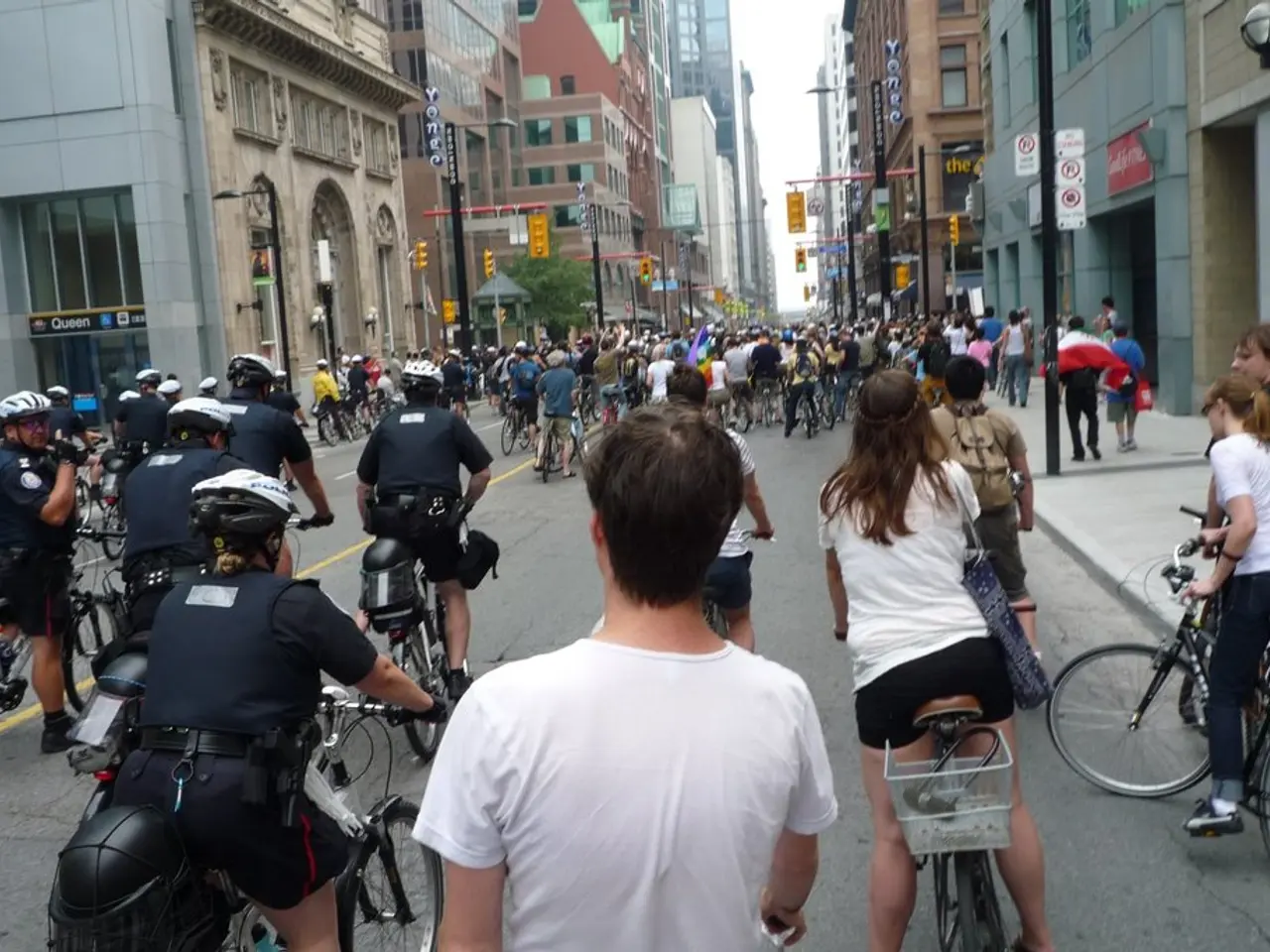Competition between bicycles and trucks
In the heart of Düsseldorf, a contentious issue has arisen regarding the implementation of a protected bike lane at Reisholzer Harbor. The project, aimed at improving safety and infrastructure for cyclists, has sparked debates among various stakeholders, including local companies, cyclists, and city officials.
The project development stage typically involves assessing the feasibility, cost, and potential impact on traffic flow by the city's transportation department or council. However, in the case of Reisholzer Harbor, the proposal has faced significant challenges. The coalition for the mobility transition has recently called for the completion of the bike lane, but the city's approach has been criticised for not making Düsseldorf a "leading cycling city in Germany."
Companies in the area, many of which are logistics firms, have expressed concerns about reduced parking and increased difficulty in accessing their premises. Some businesses fear that bike lanes could reduce foot traffic or hinder deliveries. On the other hand, cyclists generally support the project, citing safety and comfort as their primary reasons.
City officials, such as SPD traffic expert Martin Volkenbrath, have emphasised the importance of the project as part of broader sustainability initiatives to reduce traffic congestion and emissions. However, the implementation of the protected bike lane project has caused significant conflicts in daily operations for adjacent companies, leading to demands for free public parking spaces for commercial interests.
An alternative solution suggested is an autohof with sanitary facilities and a direct exit towards Holthausen on the A46 for truck parking. Despite the challenges, Volkenbrath insists that the construction of the bike path must continue, and a final assessment of the current traffic development is being prepared for decision by the traffic committee.
The area, designated as a core zone for securing "large-scale commercial and industrial settlements" in the Master Plan Industry, has seen numerous regional bicycle routes run over the street Am Trippelsberg. Deputy Mayor Cornelia Zuschke has stated that they will continue working on a solution after collecting new traffic data post-Corona.
Today, Friday, the citizens' initiative Hafenalarm is protesting in front of the town hall against the city's approach. The coalition for the mobility transition, which includes the Düsseldorf Mobility Turnaround Alliance, has previously demanded concessions from the economy for the continuation of the protected bike path.
As the debate continues, it is crucial to monitor local news sources and official city announcements for the latest developments on the project. The goal remains to strike a balance between the needs of various stakeholders to ensure the project is fair and beneficial for the community.
The protected bike lane project at Reisholzer Harbor, part of broader sustainability initiatives in Düsseldorf, faces opposition from local industries, particularly logistics firms who worry about reduced parking and delivery obstructions. On the contrary, environmental-science advocates and cyclists support the project, citing safety and comfort as primary concerns. City officials have emphasized the importance of the project in science, business, and the environment, but have also considered an autohof with sanitary facilities and a truck parking area as a potential alternative. As the debate rages on, both the needs of local industries and the safety of cyclists must be balanced to ensure a fair and beneficial solution for the community, with stakeholders urged to monitor official city announcements for project updates.




